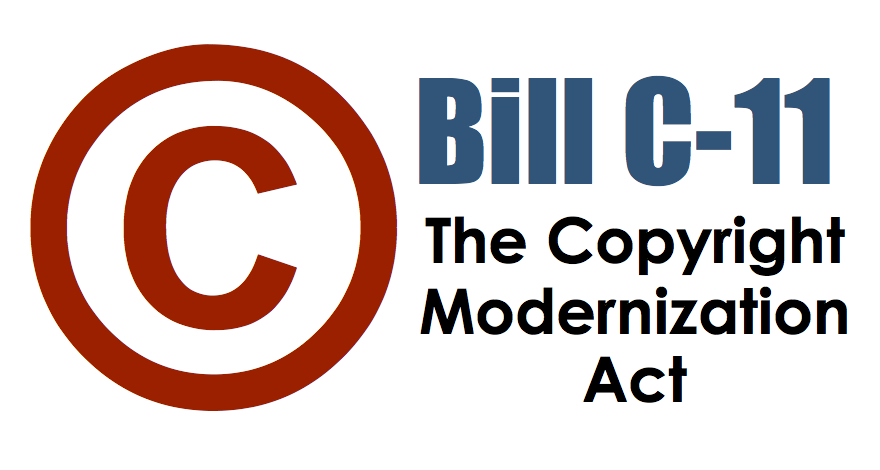Three Things You Didn’t Know About Bill C-11
 While there are definitely reasons to worry about the “copyright modernization act” (Bill C-11), comparing it to the American Stop Online Piracy Act (SOPA), is a little grandiose. In fact, the bill contains some positive changes for Canadians. The main backlash to the bill, and rightfully so, is due to the overly severe digital lock provisions. These provisions will “go the extra mile” to stop Canadians from breaking digital locks to content they’ve already paid for.
While there are definitely reasons to worry about the “copyright modernization act” (Bill C-11), comparing it to the American Stop Online Piracy Act (SOPA), is a little grandiose. In fact, the bill contains some positive changes for Canadians. The main backlash to the bill, and rightfully so, is due to the overly severe digital lock provisions. These provisions will “go the extra mile” to stop Canadians from breaking digital locks to content they’ve already paid for.
While the consequence of such a bill to consumers is evident, there are other indirect implications as well. Here are three you probably hadn’t thought about:
COMPLIANCE
Many businesses are required to back-up their data, emails, etc. for a number of years. But what if an employee emails himself or others copyrighted material, such as a song they just “need to listen to!”? Where does this put the company?
The company is mandated to keep work emails, but doing so makes them party to copyright-infringement.
ORIGINAL VS BACKUP
Bill C-11 states that there is an “original” and a “backup,” only to be used if the original is damaged, lost, or stolen. So what about mirrored network-attached storage (NAS)? Many, including myself, have lost significant amounts of valuable data (pictures, video, files, etc.) when a hard disk crashes. Mirrored NAS systems write the same data to two or more disks, so that if one crashes, the other has the data. But what if you saved digital content on a mirrored NAS?
According to an SC Magazine article by Steven Rodin, CEO of Storagepipe Solutions, the bill states one drive would be the primary, and the other the backup. If you happened to play the digital content from the wrong drive, bill C-11 states your mistake is punishable by up to 5 years in prison. The backup can only be used if the original is destroyed.
BACKUP SITES
It will be up to online backup service providers to monitor the digital rights of all their users, or else face the fire themselves. This means that sites such as Dropbox, Box.net, and Microsoft Skydrive will have to take a look at every file you put in the cloud and make sure you have the digital rights to use those files. Should your license expire, they will also be required to remove those files. Wow.











